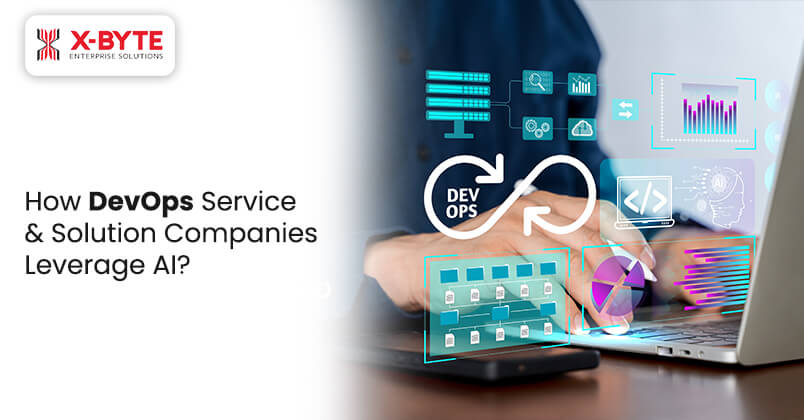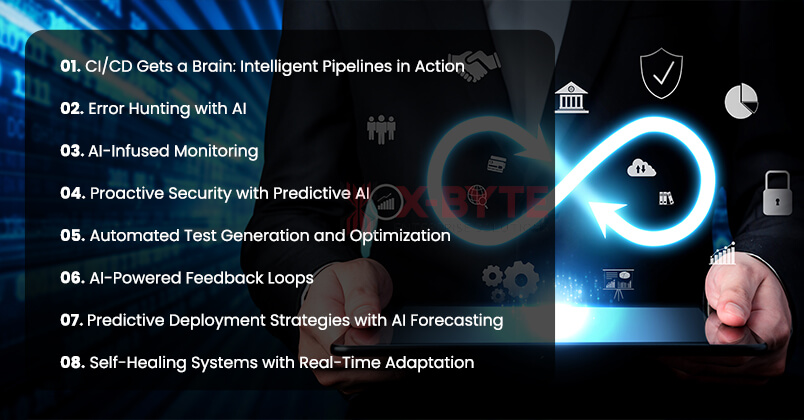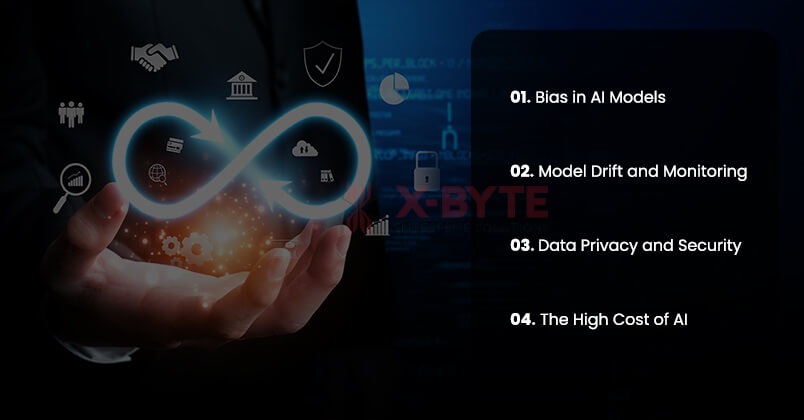-
solutinos
-
Hire
Frontend Developer
Backend Developer
-
NodeJS Developer
-
Java Developer
-
Django Developer
-
Spring Boot Developer
-
Python Developer
-
Golang Developer
-
Ruby on Rails Developer
-
Laravel Developer
-
.NET Developer
Technology
-
Flutter Developer
-
React Native Developer
-
Xamarin Developer
-
Kotlin Developer
-
Cross-Platform Developer
-
Swift Developer
-
MongoDB Developer
-
C Developer
-
Smart Contract Developers
Cloud
-
-
Services
Mobile Development
Web Development
- Work
-
Multi Services App
-
Food Delivery App
-
Grocery Delivery App
-
Taxi Cab Booking App
-
Multi Services App
-
OTT Platform APP
-
Social Media APP
-
Freelance Service App
-
Car Rental App
-
Medicine Delivery App
-
Liquor Delivery App
-
Sports Betting App
-
Online Coupon App
-
eLearning App
-
Logistics & Transportation App
-
Courier Delivery App
-
On-Demand Real Estate App
-
E-Wallet APP
-
Online Dating App
-
Handyman Services App
-
-
Process
-
Company

Quick Summary : In software development, coming up with new ideas is key to staying alive. Right now, we're on the edge of the next big step in software breakthroughs: putting AI into DevOps workflows. This mix isn't just another tech buzzword—it's real, and it's changing how we develop next-gen software solutions. From smart CI/CD pipelines to self-healing systems, AI has a tremendous impact on DevOps, turning it from a reactive field into an autonomous and forward-thinking powerhouse. DevOps engineers no longer need to spend hours writing backup scripts or fixing deployment problems. DevOps Companies can use AI to boost their workflows, solve problems, and build resilient software systems.
As AI developments impact millions of lives across the world, the DevOps community is not an exception. In the world of software development, big tech companies and the developer community are always looking for the next level of innovation. Earlier small software development workflows got automated, physical servers got moved into virtual ones, data centers got transitioned into clouds, and simple lift-and-shift cloud migrations evolved into managed services. Now, the development world is moving towards serverless environments. The point is clear—we are always moving towards the next level of technology and automation.
AI in DevOps is that next level currently. DevOps consulting services are seeking to create safer and more resilient deployments for their clients. From code and production to updates and security enhancements, DevOps teams need everything done quickly. While the responsibilities for DevOps remain the same, those workflows that earlier took considerable time are now automated using AI. Whether a DevOps engineer wants to write the backup script or change a code from one language to another (code portability), AI takes the time-consuming tasks away.
This post shows how DevOps companies can use AI in their work to boost productivity and build stronger software systems. AI is changing DevOps practices by cutting out repetitive jobs and giving a clearer picture of how systems perform. It helps with smart monitoring and automated code checks, among other things.
Let's see how embracing these AI capabilities can give your development team a competitive edge in today's rapidly evolving tech landscape.
Rise of the Autonomous DevOps
One truly remarkable thing that generative AI has achieved is to make AI accessible to all. Earlier, AI was not within the easy reach of common people. Today, tools like ChatGPT, Gemini, and Bing make AI accessible to all.
AI is set to redefine the future of DevOps. By integrating predictive and generative AI, software leaders can boost developer experience, smoothen delivery workflows, and optimize infrastructure like never before.
Additionally, AI-native CI/CD tools like GitHub Copilot X and Google Duet AI integration with Cloud Deploy offer intelligent code suggestions, proactive issue detection, and smooth deployment pipelines. With developer burnout on the rise and toolchains growing more tangled, professional AI development services bring AI solutions to the fore as the ultimate simplifier. It cuts down tool overload, reduces context-switching, and turns decision fatigue into smart, automated choices.
In essence, autonomous DevOps gained prominence because of the need for smart and flexible systems that could work without much intervention and do the intended tasks. This was driven by AI and promised efficiency, reduced costs, and intelligent decision-making.
A poll involving 504 DevOps professionals reveals that one-third (33%) work in companies utilizing artificial intelligence (AI) for software development.
There has been a considerable improvement in the reliability and speed of deployment, and the role of artificial intelligence in the DevOps pipeline is immense, with ML-based tools offering self-healing pipelines and predictive rollout strategies. Harness AI, Amazon SageMaker, Kubeflow, Azure Machine Learning, and Spacelift are some of the best AI tools for DevOps developers that have the capabilities of smooth and reliable deployments.
Additionally, highly experienced DevOps consulting service providers bring with them numerous benefits of AI-generated runbooks and alert prioritization in real-time, including intelligent automated runbook procedures for faster incident resolution, reduced manual intervention, root cause analysis, and proactive system healing.
Top Ways DevOps Can Use AI to Power Software Development

CI/CD Gets a Brain: Intelligent Pipelines in Action
Artificial intelligence has transformed how CI/CD pipelines work, auto-prioritizing builds, skipping unnecessary tests, and routing code based on ML models, making them more adaptive, intelligent, and efficient. The point in this case is OpenAI, which utilizes reinforcement learning as a means to ensure smarter deployment flows. In cases like ChatGPT, reinforcement learning, through human feedback, is used to refine model behavior, thus ensuring alignment with human expectations.
Additionally, "Just-in-time pipelines" are an approach where resources are dynamically adjusted based on real-time usage and performance metrics. The highlight of this is that these pipelines adapt in response to fluctuating demands, making them highly efficient and cost-effective.
Error Hunting with AI
DevOps service providers bring out the huge advantage of AI for DevOps teams where bug prediction is made possible before code is even written. Machine learning in DevOps is useful to train on commit data to predict and potentially prevent bugs before they are committed to the codebase. The DevOps team can use AI to analyze commit messages, code changes, and other related information. AI can help models to identify patterns associated with bug-inducing commits, which can then be used to flag potential issues at the pre-commit stage, allowing DevOps teams to address them before they reach production.
A Forbes article suggests that DevOps can request large language models (LLMs) to produce code "diffs" (or deltas) as you implement modifications.
Context-aware code review bots have changed the way codes are developed. Using AI for DevOps security and compliance, teams can analyze code within the broader project context, suggesting compliance and security, specific code, and project requirements. They go beyond basic syntax checks to understand the code's purpose, business logic, and project conventions, providing more relevant and actionable suggestions.
AI-Infused Monitoring
DevOps consulting services empower your DevOps teams to unlock tremendous value from AI-infused monitoring and incident response. Here, AI automates routine tasks, intrinsically analyzes data, and provides richer insights for identifying and resolving issues.
How AI improves continuous integration and delivery in DevOps can be understood from the famous example of Grafana + Anthropic Claude integration.
Artificial intelligence has proven to be particularly important in multi-cloud environments for correlating logs, traces, and metrics. That is how DevOps companies gain a deeper understanding of system behavior, leading to improved performance, reduced downtime, and excellence in decision-making.
Need deployment reliability and no complexity in your CI/CD pipeline?
Hire our DevOps consulting services to start your journey toward autonomous DevOps.
Proactive Security with Predictive AI
AI’s are incredibly powerful in spotting zero-days before they're public using threat modeling and NLP-based vulnerability scans. With AI, DevOps companies can activate security automation that learns from past threats, tailors alerts accordingly, and integrates LLMs into security gates to reduce false positives.
54 percent of participants pointed out better efficiency and precision of security protocols with AI in their DevSecsOps.
Additionally, incident classification and root cause detection can be improved by combining anomaly detection with GPT-based summarization, where anomaly detection identifies unusual patterns while GPT-based summarizers distill the root cause from large amounts of incident data. Using generative AI in cybersecurity incident response is one of the ways the DevOps team can leverage AI.
Automated Test Generation and Optimization
Modern AI platforms demonstrate exceptional capability in producing extensive test cases through code analysis and user interaction monitoring. Compared to conventional testing methods, AI-powered systems can detect complex edge scenarios that human testers often overlook, developing more thorough test coverage with reduced manual intervention. These smart testing platforms evolve through successive test iterations, enhancing their capability to identify crucial defects before deployment to production. 42% of DevOps engineers surveyed by Tricentis say AI has made them more productive in testing and QA.
AI-Powered Feedback Loops
AI supercharges feedback loops by instantly analyzing logs, post-mortems, and deployment results—turning hindsight into foresight. Smart tools learn from real-world production behavior, recommending process tweaks on the fly. With behavioral analytics tracking infrastructure usage, AI helps teams cut cloud costs, fine-tune deployment cadence, and keep the release engine running at full throttle.
Sophisticated feedback mechanisms establish a cycle of constant improvement. By utilizing pattern recognition and trend evaluation across various deployments, AI not only pinpoints past errors but also forecasts potential future problems.
Predictive Deployment Strategies with AI Forecasting
AI is transforming deployment from reactive to proactive. By training models on historical and real-time data, organizations can now forecast deployment outcomes—predicting if a release might fail, degrade performance, or trigger outages before it even goes live.
These AI-driven systems generate deployment risk scores, enabling teams to make smarter go/no-go decisions with confidence. In serverless environments, predictive capacity planning is another game-changer. AI analyzes usage patterns to optimize resource allocation, ensuring smooth scalability without overspending or system strain.
Self-Healing Systems with Real-Time Adaptation
A breakthrough in DevOps technology introduces autonomous self-repairing systems capable of spotting irregularities, pinpointing root problems, and executing corrections without human oversight. These platforms employ machine learning to examine patterns across application and infrastructure components, predicting potential failures before user impact. When issues emerge, AI-driven solutions can deploy corrective measures based on historical incident data, substantially decreasing system outages and manual intervention requirements.
What’s Next in the DevOps + AI Landscape?
The power-packed combination of DevOps professional services and AI promises to bring with it a future that centers around hyper-automation and intelligence. AI in the DevOps Market will reach USD 24.9 Billion in worth by 2033.
The future is driven by fully autonomous pipeline orchestrators and AI copilots that manage deployments end-to-end, from code integration to production, with minimal human intervention. Low-code DevOps AI assistants will empower developers, making complex tasks like CI/CD setup, testing, and monitoring as simple as drag-and-drop, democratizing DevOps like never before. Industry-wide, AI agents will take over environment provisioning, change management, and even rollback recovery, offering faster, smarter, and more resilient operations in a dynamic digital world.
The Rise of AIOps + MLOps + DevOps = DevAIMLOps
With AI solutions becoming fundamental to enterprise operations, DevOps practices have incorporated dedicated MLOps methodologies. This merger emphasizes the efficient development, deployment, and supervision of machine learning models alongside conventional software elements. MLOps expands DevOps principles to tackle specific challenges in AI system management, including model version control, automated data workflows, and ongoing production model performance tracking.
The year 2025 marks a turning point as AIOps, MLOps, and DevOps converge into a powerful new paradigm, DevAIMLOps. There has been an immense change in the way software is built, deployed, and managed, with AI incorporated at every stage and new frameworks and workflows finding momentum. Some platforms like HashiCorp and Azure have been pioneers in this transformation, utilizing AI-integrated Infrastructure as Code (IaC) pipelines, which bring smarter provisioning, automated governance, and predictive scaling using Predictive analytics in DevOps to the forefront.
As a result, highly experienced AI-literate DevOps engineers from leading DevOps consulting firms like X-Byte are approached by organizations to solve some of their greatest challenges and bring innovation to the fore.
Ethical, Cost, and Data Challenges of AI in DevOps

While AI and Gen AI in particular have proven to be highly useful for DevOps teams, there are unique challenges that they need to be aware of, like bias, cost, data governance, and the ethical implications of AI usage.
Bias in AI Models
AI bias is one of the significant ethical concerns. Since AI models in DevOps often depend on historical data for taking prediction-based actions, the data on which it is making those predictions is made is not cannot be skewed. It has become highly imperative to train ML models on historical deployment data so that risks can be handled proactively and inaccurate predictions can be avoided.
SAP decodes four key AI biases:
- Data bias
- Generative bias
- Algorithmic bias
- Decision bias
To mitigate these challenges, DevOps teams must ensure that the data they use for AI training is representative, diverse, and regularly updated. They need to put into action techniques like explainable AI (XAI), which ensures transparency in AI decisions and makes it easier to identify and correct biased models.
Model Drift and Monitoring
Model drift is another concern, where the AI model's performance deteriorates over time with the change in the real-world environment. In DevOps, systems, tools, and applications get frequently updated, with a chance of data becoming obsolete. Failing to retrain the AI model with fresh data can affect its predictive capabilities, affecting bug predictions and deployment success rates.
The future of DevOps and AI integration will depend on DevOps companies adopting a strategy where the AI models they handle can identify drift early and retrain models. This will ensure that the AI systems remain accurate, effective, and aligned with project requirements, and AI-driven tools have the potential to automate this process.

Bring AI-powered optimization to your software development workflow.
Book a consultation with our experienced DevOps consultants!
Get Started Today Get Started TodayData Privacy and Security
Since data that the AI models are trained on can’t be filtered for authenticity, the AI training can get compromised. Privacy regulations like GDPR, CCPA, and others are highly important for organizations and DevOps teams to protect sensitive information by ensuring that AI tools comply with them. DevOps companies can mitigate the risks of data breaches or misuse by checking what data the AI models get trained on.
AI models are hotspots for cybercriminals who are looking for a chance to inject malicious data to manipulate the AI’s decisions, also allied as adversarial attacks. An effective strategy against this is the continuous monitoring of AI behavior and integrating security protocols directly into the AI models.
The High Cost of AI
For DevOps teams, working with AI isn’t a cakewalk, as it comes with high costs related to implementing AI tools and maintaining them. This can prove to be a barrier for many businesses, especially startups and small enterprises. Additionally, the substantial computing power required by AI tools and the massive amount of training that they require with datasets means additional costs for the infrastructure, including specialized hardware like GPUs or TPUs. What this means for DevOps teams is that AI adoption is becoming a tad difficult for smaller companies.
However, now there is a change in scenario when you partner with reliable companies like X-Byte, providing DevOps implementation services, which make the AI tools and services more accessible.
Additionally, Cloud platforms like AWS, Google Cloud, and Azure have been instrumental in providing affordable AI services, where businesses can use pre-built, customizable AI tools without having to invest in expensive hardware. AI-as-a-Service has quickly gained prominence, where the infrastructure and maintenance of AI models are managed by the service provider, making AI adoption more cost-effective.
Wrapping Up
Businesses have understood the potential that AI holds for the DevOps companies, where there is an alignment in the capabilities of the team with the business goals. Organizations must now build a culture of continuous learning, training DevOps teams to work with AI. It is the era of human-AI partnership, where this synergy drives innovation, resilience, and agility at scale.
X-Byte, a market-leading DevOps consulting company, excels at tracking meaningful KPIs and empowering businesses with AI-enhanced workflows. X-Byte’s experts blend coding, ML Development services, and operational expertise to navigate the AI-first era of development with confidence. We help organizations achieve speed, stability, and scalability through the effective use of AI in the CI/CD pipeline, integrating predictive intelligence, or reimagining software delivery models. With our expert team, you can quickly get over the question of “How DevOps Companies Use AI for Automation and Efficiency,” as we are here to guide your AI-powered DevOps transformation and help you move from automation to autonomy.
Get on a call to start your AI-DevOps journey today with X-Byte!
